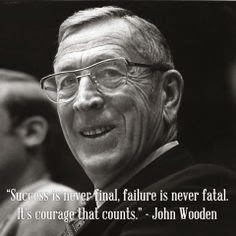
I had mixed feelings today when I heard that Hall of Fame catcher Gary Carter had died.
I wasn't one of Carter's fans. Just the opposite, as a matter of fact. He played most of his career for teams other than the Dodgers — who have been my personal favorites since I was a kid.
Twenty years ago, as his 19–year career was nearing its end, he spent a season with the Dodgers. But he spent most of his career being a thorn in their sides.
In 1981, when a strike wiped out about one–third of the season, Montreal faced Los Angeles in the National League Championship Series (which the Dodgers won, three games to two). Carter hit a blistering .438 for the Expos in that series.
Then, in 1988, as a member of the New York Mets, he came up a game short against the Dodgers again.
But, while there were many highlights in his career (which included 11 All–Star Game appearances and three Gold Gloves), Carter probably will be remembered most for the role he played in his only World Series, the 1986 Fall Classic against the Boston Red Sox.
It was the sixth game, and the Mets trailed, three games to two. In the 10th inning, the Mets trailed by two runs and there were two outs when Carter stepped to the plate. Boston got two strikes on Carter and was only one strike away from ending a title drought that was, at that time, nearly 70 years old — but then Carter got a hit and sparked a come–from–behind victory that is — justifiably — regarded by many as the greatest World Series game ever played.
The Mets went on to win the seventh game — and the Series — but that 10th–inning rally in the sixth game shifted the momentum irreversibly in New York's direction, and Carter was responsible for that.
There are still some Red Sox fans who will complain — loudly and at length — about Bill Buckner's infamous error, But if Boston had gotten Carter out, that error never would have happened, and Red Sox fans would not have been forced to endure 18 more seasons without a World Series title.
Any ballplayer can catch lightning in a bottle, of course, even on a stage as big and in a spotlight as bright as the World Series, and I would never suggest that Carter was the best player — or even the best catcher — I ever saw play the game.
But in just a few hours since I heard of his death, the thing I have heard mentioned the most about Carter — more often than the '86 Series or his All–Star selections or anything else — by sports writers and athletes alike was his infectious, ever–present smile.
"I cannot conjure a single image of Gary Carter with anything but a smile on his face," writes Tom Verducci for Sports Illustrated, and I must agree.
I did a little informal research and looked back at all the photos I could find of Gary Carter, both on the baseball field and off, and that smile was always there. It was contagious, in a way, capable of bringing a smile to the sternest of visages.
I think that was because Carter never came across as being insincere. He had been known as "The Kid" since, well, since he was a kid, and he always seemed to have that youthful zeal and exuberance.
"He was as genuine a person and as tough a ballplayer as you would ever want to come across," Verducci writes, and that certainly is true. He was a competitor. You don't spend nearly two decades playing catcher in the majors if you aren't.
They're remembering Carter with great fondness in New York, as you might expect. Mike Lupica writes in the New York Daily News that Carter is "dead much too young, the old Met they knew and we knew as Kid, the one who played the game with talent and joy and a smile."
And the New York Times, which has raised obituary writing to an art form, observes that "Carter's exuberance complemented his prowess at the plate." Considering that the Times is also mourning the loss of Anthony Shadid, its Pulitzer Prize–winning foreign correspondent, I think that's pretty generous.
In what may be the most impressive tribute paid to Carter, though, the writers in Red Sox country are being generous, too.
Ben Walker writes in the Boston Globe that "[h]is smile, bubbly personality and eagerness to excel on a ballfield made him a joy to watch at the plate and behind it."
In seven weeks, the 2012 major league baseball season will begin, and baseball fans will see every player who takes the field showing the kind of excitement that Carter showed every day of his playing career, even when his legs began to slow and his bat lost its pop. The enthusiasm fades for most ballplayers as the season progresses, but, for Carter, it never did.
Every day was like Opening Day for Carter. It was his default position.









